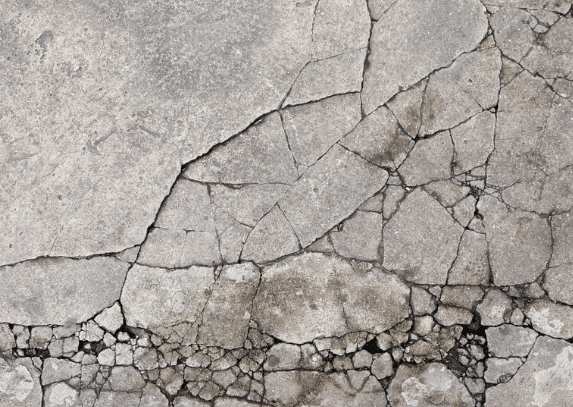Why Your Concrete Cracks In Lemon Grove?

- The quality of the concrete mix plays a significant role in its strength and durability. An improper ratio of water, cement, and aggregate can lead to a weak concrete structure that easily cracks. For example, too much water can increase concrete’s workability, but it will weaken its strength, making it susceptible to cracking.
- Concrete needs time to cure, which allows it to reach its maximum strength. If concrete dries too quickly, it can result in cracks. Maintaining a moist environment for concrete during the curing process helps to prevent this.
- Using a type of concrete that doesn’t have sufficient strength for its intended use can lead to cracks. For instance, a concrete driveway needs to be stronger than a concrete patio, as it has to withstand more weight and wear and tear.
- Concrete slabs have control joints to help manage the inevitable shrinkage that happens as it dries. If these joints are not deep enough, the concrete can crack in other, non-designated areas.
- Concrete that is subjected to more weight than it was designed to hold can crack. This could be due to heavy vehicles, large amounts of snow, or even shifting soil beneath the concrete slab.
- Like all materials, concrete expands and contracts with changes in temperature. If the temperature fluctuates drastically, it can cause stress on the concrete, leading to cracks.
- Over time, the ground beneath your concrete slab can shift, leading to uneven support. This can cause the slab to crack or buckle. Additionally, soil erosion or a significant freeze-thaw cycle can affect the ground’s stability.
FAQs
How Can I Prevent My Concrete From Cracking?
Utilize a proper concrete mix, allow for appropriate drying time, and ensure that you’re using concrete with the correct strength for its intended use. Additionally, implementing effective control joints and considering environmental factors like temperature and ground stability can help prevent cracking.
Can Cracked Concrete Be Fixed?
Yes, various repair methods exist for different types of concrete cracks. These range from sealing for minor cracks to slabjacking for more serious issues related to ground instability.
Is Cracking In Concrete A Sign Of Structural Damage?
Not always. Hairline cracks are common in concrete and usually aren’t indicative of serious structural problems. However, larger cracks or uneven concrete surfaces could suggest significant issues and should be evaluated by a professional.
Conclusion
Cracks in your concrete may be unsightly and concerning, but understanding their causes can help you prevent them. From the quality of your concrete mix to the environmental factors it faces, numerous aspects influence your concrete’s susceptibility to cracks. By considering these seven factors, you can better ensure the longevity and integrity of your concrete structures. For more information, contact Concrete Contractor Lemon Grove at (619) 648-5335.

